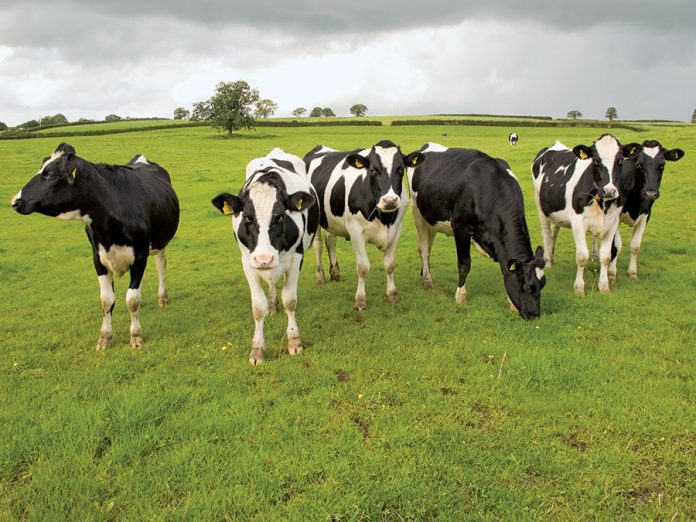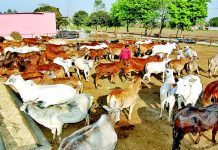The article is written by Harmanpreet Kaur, from Amity University, Kolkata. The article will analyze the cow protection laws across the country and the necessity for the same.
Table of Contents
Introduction
Cow slaughter as the term connotes is the killing of cows either for human purposes or for commercial purposes. The slaughtering of cows and the consumption of beef is a highly contentious, volatile, and politicized subject of India, and also the most controversial topic in the Indian polity. Some are of the perspective that there shall be centrally empowered laws to prohibit the slaughtering of cows and some are of the belief that these laws would violate their religious beliefs and customs. According to the annexure report of 2020, the reported number of slaughtered cows, buffaloes, and cattle for consumption in India is 35,800 and the number has been increasing since 1971 and is growing at an average annual rate of 8.67%.
The slaughtering of cows had raised serious concerns soon after India attained independence in 1947 and the question for the protection of cows is growing day by day, as it results in the economic deterioration of the country. Due to the neglect towards the protection of cows, the phenomenon has driven both the cows and the buffaloes to the door of death. If considered from a legal panorama, the slaughtering of cows actually results in the violation of animal rights, these animal rights have a juxtaposing effect on human rights. If the cows are slaughtered at this pace, then there’s no doubt in stating that it would also be red-listed under the endangered animals as per the United Nations organizations.
The concerns have though been raised by the Indian legislature and by the state legislatures and several bills have also been passed for the banning of cow slaughtering in India, seeking mandated protection for the welfare of the cows and save them from any forms of cruelty by the humans. The article will provide an insight into the different state laws passed by the respective states and union territories for the prohibition of cow slaughtering, and making it a criminal offence.
Cow slaughtering – an overview
Conflicting ideologies of the religions
The religious beliefs and ideologies of the people have made the slaughtering of cows a controversial matter. The question of the protection of cows in India is becoming more and more serious day by day, as in it lies concealed economic deterioration of the country.
In Hinduism, the veneration of cows is a complex, evolving, and ambiguous ecological tradition, and it has been a symbol of wealth in India, since ancient times. The cow has been considered as a sacred animal, and the religion has from time and again firmly expressed its importance from the spiritual, economical, and environmental perspectives, and has condemned the slaughtering of cows.
While, under Islam, the Muslims believe that as per the holy verses of the Quran, God has created cows, cattle, and buffaloes for the benefit of humans and for human consumption. The Muslims perform cow slaughter as a ritual. The Muslims and the followers of Islam perform a religious practice and sacrifice cows on the day of Bakri-id. In India, cow slaughtering is prevalent in large Muslim communities such as Assam, West Bengal, and Kerala. Since the Quran does not state the specifics of the sacrifice and whether a cow is the only animal that has been recommended for sacrifice is the subject of discussion. The Muslims have also been questioned by the central government and the judiciary on the legality of the ritual, and this as a result creates a conflict between the judiciary and the personal laws.
Therefore, on the one hand, cows have been considered sacred animals that should not be killed or sacrificed, while on the other hand, Muslims have been continuing the practice of slaughtering cows as a religious tradition. Consequently, these two conflicting religious beliefs have remained a source of antagonism in the academic debates and among the fierce and passionate political and judicial parameters. These religious beliefs and ideologies are dated back to the colonial period and are still being practiced. The opposite beliefs between the two religions have also resulted in communal violence thereby jeopardizing the protection of cows.
The cow slaughter ban
The matter that has been a hugely controversial topic among the socialist and political groups is the question of the cow slaughter ban. In ancient India, it has been stated that the Hindus were prone to eating beef. Today a new version of Hinduism is imposed not only on the Hindus but among all the sections of the society. Individual autonomy even to eat certain foods is under threat due to the politics of cow slaughter.
Due to the increase in the cases of community violence, the government made amendments to the Maharashtra Animal Preservation (Amendment) Act, 2014, and deliberately prohibited the slaughter of cows, bulls, and bullocks and the possession and consumption of their meat as well in the state of Maharashtra. The amendment was challenged in the Bombay High Court, and the court had to address the legal questions regarding cow slaughter, freedom of religion, and the economic justification of a slaughter ban on bulls and bullocks.
The court pronounced its judgment in the case of Shaikh Zahid Mukhtar vs The State Of Maharashtra, 2016 regarding the cow slaughter ban and stated that the provisions were unconstitutional and permitted the consumption of beef outside the provinces of the state. The government filed a writ petition in the Supreme Court in 2017 to ban cow slaughtering. The court stated the importance of the right to privacy as a fundamental right to every citizen of India and stated that the person’s eating habits are a matter of his personal autonomy and the practicing of any religion is his matter of personal choice and affirmed that the state had no rights to decide on the person’s personal, social and political matters.
The court also suspended the ban on cow slaughter stating that it would be affecting the livestock markets, the meat, and leather industries thereby affecting the lives of the minorities.
Mob lynching
Mob lynching can be referred to as the killing of innocent people and groups or communities for an alleged offence without following any due process of law thereby violating the provisions of law. It has been emerging as a collective hate crime in a society that targets a specific identity or a group of communities. The reasons for mob lynching among the various religious sections of society are cow slaughtering, smuggling, and rumors of cattle theft. The occurrence of incidents of mob lynching is on the increase and has increased to 75 percent in the past four years. The people attacked through lynching are either murdered, harassed, assaulted, attacked by cow vigilantes, or are gang-raped. The victims are either chained, brutally beaten, or are hanged causing grievous injuries or pertained to death. The communities that get targeted due to this inhuman activity are the Muslims, Dalits, and the lower castes. The majority sections of the societies dominate the minorities accusing them of slaughtering cows.
The crime of mob lynching violates the basic fundamental rights of the minorities i.e, Article 14 and Article 15 of the Consitution of India. Though no specific sections are dealing with mob lynching under the Indian penal Code, various sections can be imposed if the mob lynching occurs i.e, Section 302, Section 304, Section 307, Section 323, and Section 147 of the Indian Penal Code. As there are no specified laws against the offense of mob lynching, the courts have stated that the groups or the individuals committing the crime are to be punished under Section 223(a) of the Criminal procedure Code.
The writ petitions were filed jointly by Tehseen Poonawalla and Tushar Gandhi under Article 32 of the Supreme Court in the year 2016 against the growing menace of mob lynching and communal violence among the religious groups of the society.
Cow slaughter and the Constitution of India
The Constitution of India forms the Grundnorm of the legal arena and lays down the fundamental political code, rights, and duties of the citizens, directive principles of state policy, procedures, structures, rules, and powers of the governmental institutions. The Constitution of India has recognized and introduced fundamental rights to grant protection to the citizens, but with the evolving times, the judiciary has affirmed that the animals shall also be protected with dignity. The prohibition of cow slaughter can be summed up through the basic constitutional provisions.
Article 21 – Right to Life
Article 21 has guaranteed the right to life and personal liberty to citizens only against executive action. It is referred to as the ‘Magna Carta’ of the Indian constitution. The Supreme Court has interpreted the meaning of Article 21 and included the right to food, shelter, education within the ambit of Article 21. It was in 2010 that the Supreme Court for the first time in the case of Animal Welfare of India v. A.Nagaraja and others included the protection of animal life within the ambit of Right to Life.
Article 48 – Directive Principles of State policy
Article 48 of the Constitution of India has directed:
- The states to take steps for organizing agriculture and animal husbandry on the modern and scientific aspects,
- To take steps for the preservation and improvement of the breeds,
- To prohibit the slaughtering of cows, calves, cattle, and buffaloes.
Article 51A – Fundamental Duties
Article 51 A of the Constitution of India deals with the fundamental duties of the citizens. Rights and duties are correlative. The fundamental duties are intended to serve as a constant reminder to every citizen that while the constitution has provided the citizens with the basic fundamental rights, it also requires the citizens to observe certain basic norms of democratic conduct and behavior.
The citizens have been embedded with the duty to cherish and follow the noble ideals that have inspired the national struggle for freedom. Thus, this duty of the citizen can be interpreted as, that during the first war of independence the Indians contended against the practice of slaughtering cows for economic and consumption purposes and to have compassion for all the living creatures.
Article 245 – Parliament and states
Article 245 enumerates the extension of laws made by the Parliament and the state legislatures. It states that:
- The parliament has been given the right to introduce, enact and amend new laws for the territory of India
- The parliament has accorded the power to the state legislature to introduce new laws for any respective part of the state.
Article 246 – Jurisdiction of Parliament and states
Article 246 has enumerated that the State legislature has been empowered with the executive power to introduce, make and enact laws for their respective states regarding the matters mentioned in the State list. The subjects on which the states can make laws in the state list are related to police, trade, agriculture, and irrigation. So the states have passed various legislations in accordance with the powers accorded to them by the Parliament through Article 246.
The Central government’s laws
Prevention of cruelty to Animals Act, 1960
The Prevention of Cruelty to Animals Act, 1960 was introduced by the parliament to prevent the animals from any kind of unnecessary suffering, pain, and cruelty. The Act has made it a criminal offense to beat, kill, torture, threatening the animals, or imposing any kinds of cruelty. The person committing such a crime would be punished with imprisonment for a term of three months or the fine extending to Rs. 100 or both.
The state legislature and the Cow Slaughter
The center has not introduced any specific legislation regarding cow slaughtering, even when the parliament has the power to introduce laws for the national interest.
The states have been empowered to make laws for their respective states under Article 246 of the Constitution of India. The states in India have introduced and enacted various laws such as The Andhra Pradesh Prohibition of Cow Slaughter and Animal Preservation Act, 1977, The Uttar Pradesh Prevention of Cow Slaughter Act, 1955, The Delhi Agricultural Cattle Preservation Act, 1994, The Gujarat Animal Preservation Act, 1954, Maharashtra Animal Preservation Act, 1976, The Tamil Nadu Animal Preservation Act,1958 and many others to prohibit and restrict cow slaughtering in India and provide protection to the animal life i.e, cows, buffaloes, cattle, and bulls, complying with the provisions of the Constitution of India and to combat the violence among the various religious groups
Analyzing the prevention of cow slaughter laws across the country
The states have passed laws under Article 246 of the Constitution of India for the preservation of cows, cattle, buffaloes, and other animals in the states. All the states and union territories of India except the states and union territories of Kerala, Arunachal Pradesh, Meghalaya, Mizoram, Nagaland, and Lakshadweep have passed laws to prohibit cow slaughtering. The states have passed legislation on the same subject, but there are differences in the scope of the law and the punishment prescribed. Though laws have been made on the prohibition of cow slaughtering, there are no imposed restrictions on the consumption of beef.
- In the states and union territories of Delhi, Gujarat, Haryana, Himachal Pradesh, Jammu and Kashmir, Punjab, Rajasthan, Uttar Pradesh, and Uttarakhand the slaughter of cows, bulls, and bullocks of all ages has been banned completely.
- The states and union territories of West Bengal, Andhra Pradesh, Tamil Naur, Odisha, Karnataka, Pondicherry and Andaman, and the Nicobar Islands have provisions in their respective acts allowing the slaughtering of cows, bulls, and bullocks if the person has been prescribed with the certificate by the Competent authority, veterinary surgeon and any other authorized person prescribed by the state government.
- The states of Gujarat and Uttar Pradesh have permitted the slaughter of buffaloes, but only after obtaining the certificate from the competent authority.
- The states of Assam, Bihar, Chhattisgarh, Odisha, and Andhra Pradesh have categorized the offense of animal or cow slaughter as a cognizable and a bailable offense.
- The states of Punjab, Gujarat, Haryana, Goa, Delhi, Pondicherry, Himachal Pradesh, Jharkhand, Madhya Pradesh, Maharashtra, Uttar Pradesh, Uttarakhand, and Rajasthan have categorized the offense of animal or cow slaughter as a cognizable and a non-bailable offense, while the states of Karnataka and West Bengal have recognized the offense as a cognizable offense.
Punishment for cow slaughter:
- The punishment prescribed for cow slaughter in the states of West Bengal, Andhra Pradesh, Tamil Nadu, Maharashtra, Karnataka, Bihar, Assam, and Delhi is six months of imprisonment or, fine of Rs.1,000 or both.
- The punishment prescribed for cow slaughter in the states of Punjab and Himachal Pradesh is five years imprisonment or, fine of Rs. 5,000 or both.
- The punishment prescribed for cow slaughter in the state of Uttar Pradesh is seven years imprisonment or fine of Rs. 10,000 or both.
- The punishment prescribed for cow slaughter in the states of Orissa and Pondicherry is two years imprisonment or, fine of Rs. 1,000 or both.
- The punishment prescribed for cow slaughter in the state of Madhya Pradesh is imprisonment for the term of seven years or, fine of Rs.5,000, or both.
- The punishment prescribed for cow slaughter in the state of Jharkhand is imprisonment for the term of one year extending to ten years or a fine of Rs.10,000 or both.
- The punishment prescribed for cow slaughter in the state of Gujarat is imprisonment for the term of seven years extending to life imprisonment, fine of Rs. 100,000 extending to Rs.500.000 or both.
Judicial Interpretations
The Legislature was unable to resolve the religious conflicts among the people and hence the matter was reached to the courts. The various groups of society have repeatedly complained to the judiciary that state legislatures have breached their right to religious freedom, while the constitutional legality of state legislatures has also been questioned. As a result, through numerous case statutes, the judiciary has attempted to maintain the balance.
Mohd. Hanif Quareshi & Others vs The State Of Bihar, 1958
In this case, the petitioners from the quareshi community were engaged in the butcher’s trade and therefore were not given allowance to carry on their business as it violated the state legislature acts. The petitioners challenged the constitutional validity of the three acts that imposed a total ban on the slaughter of cows, bulls, bullocks, and calves namely, The Bihar Preservation and Improvement of Animals Act, 1955 and The U. P. Prevention of Cow Slaughter Act, 1955 and The Central Provinces and Berar Animal Preservation Act, 1949. The petitioners claimed that the acts have violated their basic fundamental rights under Article 14, Article 19(1)(g), and Article 25 of the Constitution and claimed that if there is any kind of a clash between the state laws and the center laws, then the center laws shall prevail. The respondents on the other hand affirmed the standing of the petitioners and stated that the acts that have been introduced and enacted by the State legislature are directly acting in compliance with Article 48 of the constitution of India, which deliberately states the importance of the protection of animals and were superior to the fundamental rights of the Constitution of India.
The case was taken to the Supreme Court, which ruled that the acts did not violate citizens’ fundamental rights and that the ban on the slaughter of cows was reasonable and valid, citing Article 25 of the Indian Constitution, which stated that the ban did not violate the provisions of Article 25 because the sacrifice of the cow on Bakra-eid was not mandatory.
State of West Bengal v. Ashutosh Lahiri, 1994
In this case, the petitioners challenged Section 12 of the West Bengal Animal Slaughter Control Act, 1950 stating that it violated Article 25, which has been guaranteed by the Constitution of India. The petitioners stated that Section 12 barred the slaughter of healthy cows on the day of Bakr-id which was a mandatory practice and hence the state should amend the act.
The Calcutta High Court stated that the slaughter of cows on the day on Bakr-id by the Muslim community was not a mandatory practice and thereby was outside the ambit of Section 12 of the West Bengal Animal Slaughter Control Act, 1950.
Dulla And Ors. vs The State of Uttar Pradesh, 1957
In this case, the accused were found violating the U. P. Prevention of Cow Slaughter Act, 1955, and raised concerns on the issues of public importance. The accused were arrested by the police on the receipt of information as they were found slaughtering the cow and distributing the pieces of it among the young children, thereby violating the provisions of the Act. After investigation, it was found that the cow has not been suffering from any disease and was neither used for any experimentation or medicinal purposes.
The court arrested the accused under Section 8(1) of the Act and held them guilty of violating the provisions of Section 3 and Section 5 of the U. P. Prevention of Cow Slaughter Act, 1956, and resultantly granted the order of imprisonment for eighteen months.
Recommendations for administering the cases of cow slaughter
The laws have always been passed fully in compliance with the fundamental principles of the Constitution of India. Few recommendations can be summed up to curtail communal violence due to cow slaughtering and prohibit cow slaughtering. A few recommendations are:
- An act should be enacted by the legislation to prevent communal violence, that gets ignited due to cow slaughtering.
- The National Advisory Committee (NAC) Communal Violence Bill: Prevention of Communal and Targeted Violence should be passed in both the houses of the parliament, by complying with the provisions of human rights. This would accord the states with the power to amend their cow slaughter acts and include the power to stop communal violence.
- The Cow Protection Bill, 2017 that was passed by the members of the Lok Sabha and could not receive the president’s assent, should be revised and an act should be passed.
- An expert committee should be formed including the agriculturalists, civil society groups, and farmers who would be given the responsibility to review and propose recommendations on cattle protection.
- The ban on the slaughtering of cows should be mandated with certain exceptions at the central level.
- The states that have no prescribed punishment against the people who commit the crime of cow slaughtering should amend their acts and impose the punishments for the same.
- Mob Lynching should be categorized as a crime under the India Penal Code so that the innocents are saved from the violent attacks of the communist groups.
- The State government should take measures and prescribe measures to the police officials and other empowered authorities to ensure proper and fair investigation in the cases of mob violence.
Conclusion
Religion and spirituality have been the central focus of Indian society, but religion has always been an inward association. The Constitution of India has also been framed with the same rationale i.e, to provide equality to all the religions and the states have been asked not to interfere with the same. The question of cow protection and development was the main cause for all the religious conflicts in the society because of the varied religious beliefs and ideologies of the people. When these contentious issues reached the judiciary, it made rulings in the spirit of equality and equity, ensuring that no religion is singled out, and ensured that the cow’s protection is not jeopardized.
The topic of cow protection does not begin or end with the prevention of cow slaughter; rather, the government and the people must carry out their obligations and responsibilities, and a balance must be maintained between the two. The states in India have already passed legislation to prevent cow slaughter, complying with the principles of Article 48 of the Constitution of India, but there are few states and union territories with no proper legislation against cow slaughter, maybe because few of them are still rethinking on the issue of the slaughter.
The legitimacy for the demand on the cow slaughter would raise controversies and there would be unlimited cases of mob violence. The Parliament should introduce a centrally empowered law to protect the cows, which has been becoming an issue of primary concern.
References
- https://indiankanoon.org/
- https://factly.in/a-review-of-the-prevention-of-cow-slaughter-laws-across-the-country/
- https://www.researchgate.net/publication/226094586_Negotiating_the_%27Sacred%27_Cow_Cow_Slaughter_and_the_Regulation_of_Difference_in_India
- https://www.hrw.org/sites/default/files/report_pdf/india0219_appendix_1.pdf
- https://www.hrw.org/sites/default/files/report_pdf/india0219_web3.pdf
LawSikho has created a telegram group for exchanging legal knowledge, referrals, and various opportunities. You can click on this link and join:
 Serato DJ Crack 2025Serato DJ PRO Crack
Serato DJ Crack 2025Serato DJ PRO Crack











 Allow notifications
Allow notifications


